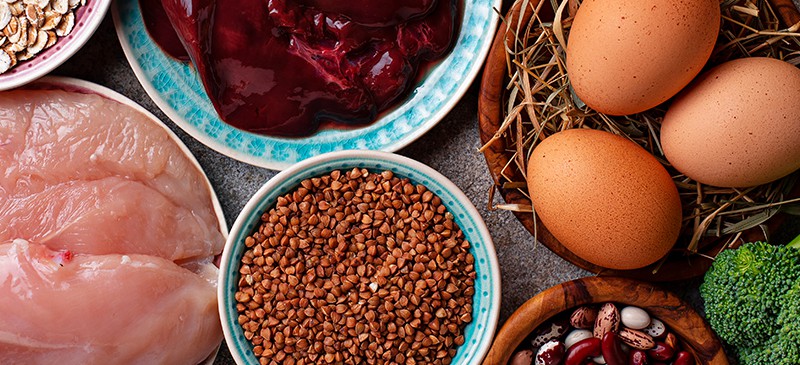
Deciphering the link between a balanced diet and COVID-19 recovery
A recent study has shown a link between higher selenium - a trace mineral responsible for the production of antioxidant enzymes - levels in the human body and recovery rates from coronavirus. On the other hand, a UK-based doctor has pointed to the high intake of refined carbohydrates behind COVID-19 deaths in India.

A recent study has shown a link between higher selenium – a trace mineral responsible for the production of antioxidant enzymes – levels in the human body and recovery rates from coronavirus. On the other hand, a UK-based doctor has pointed to the high intake of refined carbohydrates behind COVID-19 deaths in India.
However, experts say it is not one nutrient, but a balanced diet replete with traditional spices that hold the key to building immunity and increases the recovery rate from infections.
Selenium and recovery from COVID-19
The study conducted by researchers at the University of Surrey, UK, and published in the American Journal of Clinical Nutrition revealed that areas where people had high levels of selenium (found in fish, meat, and cereals) were more likely to recover from the virus.
As per earlier studies, Selenium deficiency has been also linked with viral infections and determines the progression of HIV to AIDS and death.
Related news: Human challenge trials for COVID-19 vaccine: A risky time-saver?
U.K based Dr. Aseem Malhotra, National Health Service in a recently published report linked the higher prevalence of lifestyle diseases like hypertension, obesity, and diabetes, and the reliance on refined carbs in the form of flour and white rice as a deterrent in the fight against COVID-19.
Patients with co-morbidities should follow a high protein diet
Dr. Janaradhana Naik CH, a consultant at General Hospital, Kasargod said that while undergoing treatment for COVID-19, most patients do not have appetite and patients in category B or those with comorbid conditions, a high protein diet is given.
“For those with diabetes and respiratory conditions, we restrict carbohydrates. Their diet includes vitamin C rich fruits like orange, mousambi, and gooseberries, apart from papaya that is rich in vitamin A. Apart from these, they are also given zinc and vitamin D supplements,” he said.
Dr. V. Mohan, chairman, Dr. Mohan Diabetes Specialties Centre, endorses the effect of good protein in the form of different lentils and beans for vegetarians and fish, chicken, lean meat, and eggs for non-vegetarians.
Resonating with Dr. Malhotra, he said that Indians must replace a high carbohydrate diet with a combination of good protein diet and complex carbohydrates like millets, brown rice, etc.
“We should add healthy fats like gingelly oil, groundnut oil, and mustard oil, and nuts that are rich in omega 3 fatty acids in our diet. A person with controlled sugar levels and hypertension is as much a non-risk patient as someone without the factors. The underlying lesson for everyone is to keep the levels of nutrients under check,” he added.
Not one nutrient, but a whole pack of them
Dietician Meenakshi Bajaj from the Tamil Nadu Government Multi Super Specialty Hospital said that as the world is still coming up with ways to manage COVID-19, and one cannot link one nutrient as a key to recovery from it.
She explained that the diet for COVID-19 patients, who are stable or in quarantine, should be balanced along with traditional spices, comprising of quality protein — milk, eggs, fish and chicken – besides Vitamin A, C, D, E, B6, B12 and minerals such as zinc, selenium, iron, healthy fats like omega 3 fatty acids and specific phytonutrients to provide an optimal immune response.
Related news: Testing not enough, scientists examine sewage to gauge COVID-19 spread
“A balanced diet with optimal critical nutrients and traditional spices (turmeric, ginger, garlic, basil leaves, pepper, cinnamon, and star anise) enhances immunity to promote recovery. Immunity also depends on gut health, in the presence of prebiotics (from onion, banana, and apples) and probiotics (fermented curd, yogurt) in the diet. Naturally-coloured fruits and vegetables, nuts, seeds, spices are also sources of fiber and antioxidants. Anti-inflammatory foods like omega 3 fatty acids in green leafy vegetables, fenugreek, and lesser than one teaspoon of flax seeds per day are also recommended,” she said.

